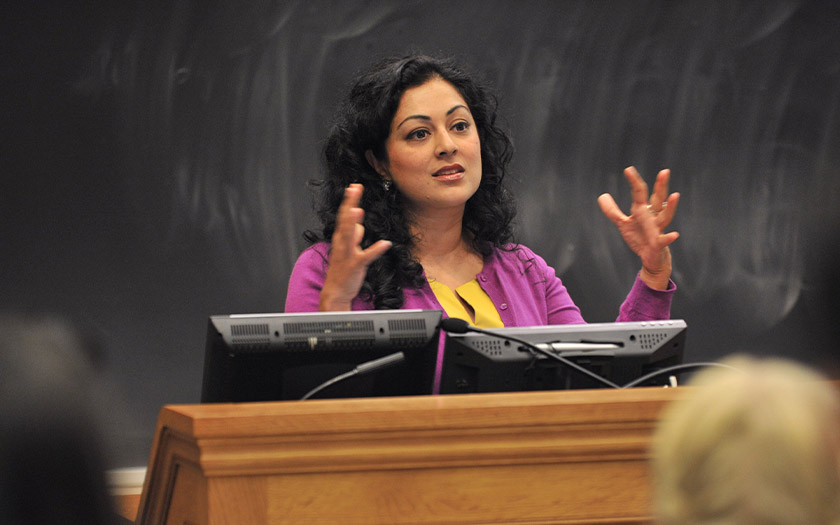
The COVID-19 pandemic has revealed policymaking biases that have ignored poor and marginalized communities, argues Ford school professor Shobita Parthasarathy. In a paper, Innovation Policy, Structural Inequality, and COVID-19, published in the Winter 2020 edition of Democratic Theory, she says the U.S. approach to innovation — research funding and patent policies and programs — have attended to the needs of society’s most privileged members. That has led to a limited understanding of health disparities and how to address them, and hampered access to essential technologies due to both lack of coordination and high cost.
“Fair and equal treatment of vulnerable citizens requires sensitive and dedicated policies that attend explicitly to the fact that the benefits of innovation do not simply trickle down,” she writes.
Parthasarathy has been examining the effects of innovation policies in the U.S., UK, Singapore and South Korea as a part of a year-long study funded by the National Science Foundation. This paper focuses on the United States, but many aspects of U.S. research and development policy have been adopted around the world.
Scientists and the private sector drive U.S. innovation policy infrastructure, which includes research funding, technological development, issuing patents, and their associated rules and laws. The private sector then makes money by using the science to develop socially beneficial technologies.
She writes that the modern patent system is key, as the government incentivizes inventors by providing them with patent rights, to commercialize and profit from their new technologies.
That impetus has increased, as cash-strapped universities encourage their researchers to patent inventions, and license these patents to private companies who will develop and commercialize them. As a result, high-tech industries have blossomed. And countries across the world have adopted these innovation policies, seeking to replicate the U.S. approach.
But she says, “the COVID-19 crisis has shown us that these innovation policies do not serve citizens equally, in at least three ways:”
(1) Minimal funding has been provided for health disparities research. The NIH, the world’s largest public funder of biomedical research, devotes little money to the disproportionate health impacts of the virus among people of color, especially Black communities.
(2) Uncoordinated research and development creates uneven access to diagnostic testing. In the U.S. diagnostic testing for SARS-CoV-2 (the virus that causes COVID-19) has been essentially impossible to coordinate. By contrast, South Korea has been widely praised for its SAR-CoV-2 testing strategy.
(3) Patent policies limit access to essential technologies. In the United States, pricing decisions are left up to patent holders, with the assumption that their decisions will ultimately benefit society, but without coordinated oversight.
Parthasarathy concludes, “As the world’s leaders reckon with the inequities and injustices revealed by the pandemic, they must recognize that fair and equal treatment of these vulnerable communities requires sensitive, dedicated, and well-coordinated policies that attend explicitly to the fact that the benefits of innovation do not simply trickle down.”
You can read the paper here.
